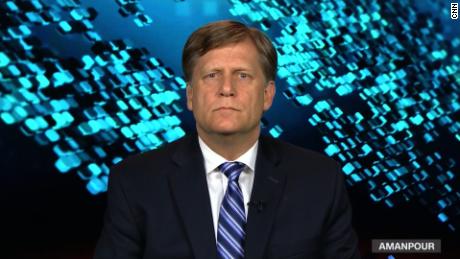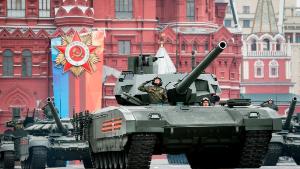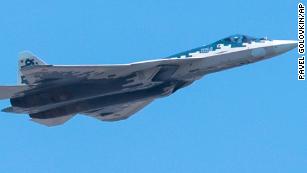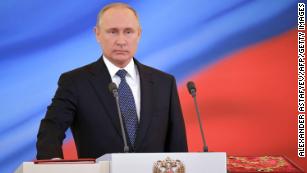Why this year's Victory Day parade in Red Square matters
Moscow (CNN)The May 9 Victory Day parade is a major public ritual in Russia. It's a showcase of military might that marks the defeat of Nazi Germany in 1945. This year's event, however, is about more than just historic commemoration.
Israeli Prime Minister Benjamin Netanyahu is expected to view the parade on Wednesday. His high-profile visit to Moscow comes amid a looming crisis over the Iran nuclear deal.
Russia and Israel have complex ties. Russian President Vladimir Putin is a military ally of Iran, Israel's sworn enemy. And at Wednesday's parade, Netanyahu will be watching some of the hardware that Tehran seeks to boost its own arsenal.
Russia's Victory Day parade: Weapons to watch
The Kremlin wants to keep the Iran deal intact; Netanyahu is a vocal critic who says Iran has lied about its nuclear program.
Yet Netanyahu has a strong working relationship with Putin, and the two leaders have kept open lines of communication amid the escalating confrontation between Israel and Iran.
Against this backdrop, the past is still very much alive.
It would be hard to overstate the importance of the Second World War -- known in Russia as the Great Patriotic War -- in Russia's collective memory. Estimates vary, but the Russian Ministry of Defense last year issued a statement that put total Soviet deaths from the war at 26.6 million.
After the collapse of the Soviet Union and the loss of superpower status, commemoration of the Second World War became the main focus of patriotic expression in Russia.
The Victory Day parade in Red Square -- which features tanks and missile launchers and a flyover by military aircraft -- is its centrepiece.
The government also promotes the Immortal Regiment, originally a grassroots initiative in which marchers carry photographs of relatives who fought in the Second World War, and the wearing of the orange-and-black Ribbon of St. George.
The message is simple. As the slogan on a Victory Day mural in downtown Moscow puts it, "The world that was saved remembers."

Play Video
US and Russia: 'A very confrontational moment'
The history of the war is heavily politicized, however.
"The regime claims to be the direct successor of all Russia's glorious victories, chief among them the defeat of Nazism in the Great Patriotic War of 1941--1945, and thereby makes itself immune to criticism," Moscow Carnegie Center expert Andrei Kolesnikov wrote in an essay last year.
The Russian government nurtures a heightened sensitivity about the war and the Soviet sacrifice, and is quick to criticize any attempt to cast the Soviet victory in anything other than heroic terms. Maria Zakharova, the spokesperson for the Russian Foreign Ministry, often devotes a portion of her weekly briefing to castigate governments that have moved or taken down Soviet-era war memorials, seen in some countries as symbols of post-war occupation, not liberation.
In a recent briefing, she highlighted the role the Red Army played in bringing an end to the Holocaust. Noting the upcoming 75th anniversary of the Sobibor uprising -- the 1943 breakout from a Nazi extermination camp led by a Soviet prisoner of war -- she blamed other countries for rewriting history.
"We believe that events of this nature carry a very important message -- they help preserve the objective memory of the past, of the Jewish people's tragedy, of the Red Army's contribution to stopping the 'death factories' -- the Nazi concentration camps where people of various nationalities died," she said.
"It is particularly important to preserve this memory today in an atmosphere where some countries attempt to falsify history, revise the causes and results of World War II, demolish monuments erected in honour of those who gave their lives for the victory over Nazism."
Russia's Putin sworn in for another six years
Russia's relations with the West have been under extreme strain since Moscow's annexation of the Black Sea peninsula of Crimea from Ukraine in 2014. Several Western leaders snubbed the Russian celebration in 2015 of the 70th anniversary of the allied victory over Nazi Germany. Netanyahu's visit, then, raises the profile of this victory day.
And while the May 9 parade commemorates Soviet sacrifice, it is also a raw expression of Russia's contemporary military might.
In a recent speech, Putin boasted of new weaponry that would thwart US defences. Some of Russia's newest hardware is expected to be on display, and the Victory Day review sends a pointed message about Russia's muscular new foreign policy, and Putin's new role as a power broker in the Middle East.
News Courtesy: www.cnn.com













